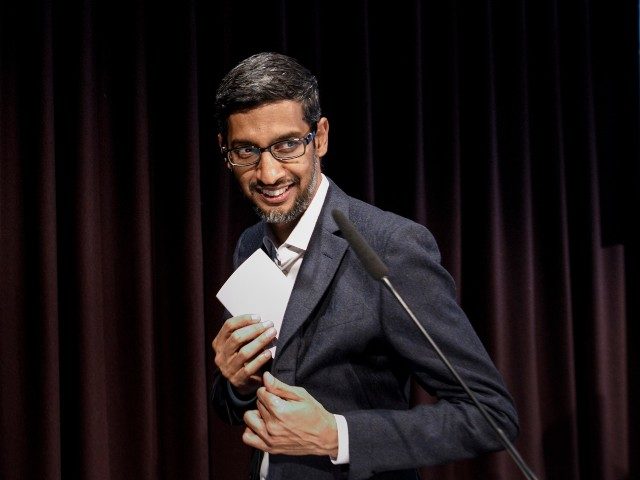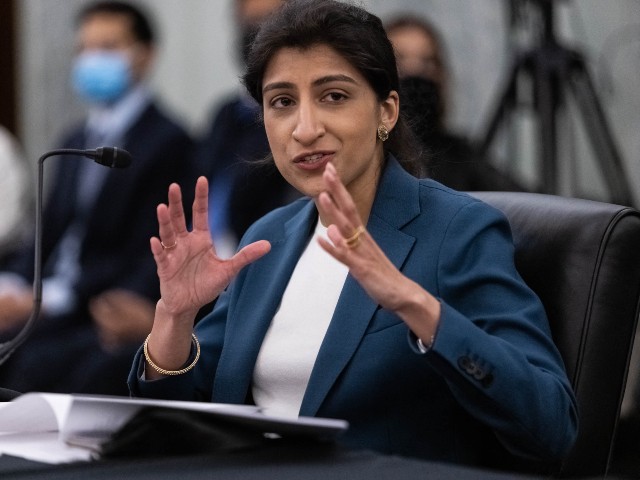The Biden Administration’s FTC and DOJ have signaled an aggressive antitrust strategy against Big Tech, but there are growing concerns that the efforts are being redirected, not against monopolies but against smaller companies trying to compete with them.
During the Obama Administration, Google exerted enormous power over antitrust policy at the Federal Trade Commission and Justice Department due to their close ties and donations to the Obama administration, as well as a revolving door of administration officials with the tech monopoly.
Under Biden, FTC Chair Lina Khan and Justice Department antitrust chief Jonathan Kanter are largely against Big Tech from a competition standpoint — but are actively hostile to online free speech, with no plans to address widespread public complaints about out-of-control censorship.
Big Tech has been attempting to turn the nascent antitrust efforts to its advantage, by redirecting the progressive left’s efforts to target companies and causes that do them no damage or help them, particularly on issues like “net neutrality” and intellectual property.
An illustrative example is a recent letter by a Google-funded professor and think tank to Assistant AG Kanter demanding antitrust enforcement against relatively small companies. The letter is described as being signed by “28 former government enforcement officials, professors, and public interest advocates.” It appears on the SSRN page for Alex Moss of the Public Interest Patent Law Institute and Professor Michael Carrier of Rutgers Law School, who was also an advisor to Joe Biden’s 2020 campaign. The metadata of the PDF shows Prof. Carrier is the author.
The Public Interest Patent Law Institute is an obscure organization with Moss as just one of two listed staff members. However, Moss also serves as a special advisor to the Electronic Frontier Foundation, which also signed on to the letter. EFF has received millions of dollars from Google over the years to defend the tech giant on intellectual property, Section 230 reform, net neutrality, and censorship practices.
Similarly Michael Carrier has acknowledged $40,000 dollars in direct support of funding from Google specifically to study “copyright secondary liability and innovation.” Carrier has subsequently filed numerous briefs supporting Google’s positions on intellectual property issues.
Public Knowledge, who also signed the letter, publicly acknowledges it receives at least $50,000 a year from Google as well as Microsoft and Netflix. Other Big Tech-funded signers include Former FTC Chairman and George Mason Law professor Tim Murris.
He once co-wrote a law review article defending Amazon against antitrust claims, but later admitted the article was entirely funded by Amazon. Former FTC lawyer David Balto who has disclosed he “published research and authored scholarship for Google on technology policy topics” also signed the letter.
It may seem odd that pro-Big Tech authors are encouraging the Justice Department to strengthen antitrust enforcement. However, rather than address the trillion-dollar Big Tech monopolies, they are concerned about a small patent licensing platform called Avanci SEP which licenses certain wireless technology for automobiles. Avanci fought off an antitrust complaint from the German auto parts company Continental earlier this year.
The Google funded-scholar’s letter about this lawsuit complains that Avanci may increase its “license rates from $15 to $20 per car.” Whatever the merits of this argument, a five dollar increase in cars which sell for tens or hundreds of thousands of dollars doesn’t seem to warrant much attention.
However, Big Tech is afraid that stronger IP protections will keep them from being able to infringe. In fact, Apple filed an amicus brief in this case. Google’s own lawyers have acknowledged, “Google’s leadership doesn’t care terribly much about precedent or law” when it infringes on others’ IP.
As Trump’s top internet advisor Adam Candeub has noted in other contexts, when Google funds academics to weaken intellectual property laws, it is not about helping “small tech companies compete but letting Big Tech companies ignore the law to continue their dominance.”
This is just the latest example of Silicon Valley using liberal academics to push its agenda to ignore the law while claiming to promote competition.
Allum Bokhari is the senior technology correspondent at Breitbart News. He is the author of #DELETED: Big Tech’s Battle to Erase the Trump Movement and Steal The Election.


COMMENTS
Please let us know if you're having issues with commenting.